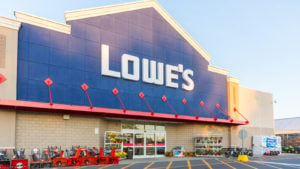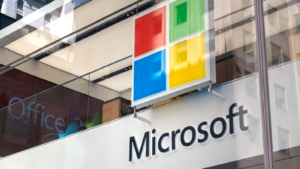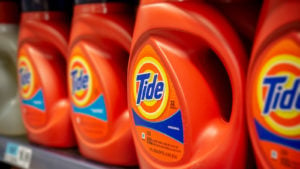Although investors have some evidence of a possible economic recovery, they should still consider defensive stock picks. We just don’t know what will happen next. Moreover, certain data points contradict the optimistic narrative, thus warranting a reexamination of stable investment choices.
To be sure, the latest jobs report offers much encouragement for everyday households. With the U.S. economy adding 199,000 new opportunities – an unexpected rise – circumstances should theoretically bode well for both consumers and investors. So, why the urgent focus on so-called economic safety stocks?
For one thing, InvestorPlace wouldn’t be running a layoffs tracker if the economy hummed brightly for all sectors. Second, subtle details – such as declining sales of Swiss luxury watches – imply that even the more affluent are feeling the heat. At the very least, they’re recognizing the signs of what might lie ahead.
For that, it’s important to not abandon a cautious approach by targeting defensive stock picks.
Duke Energy (DUK)

What it is: One of the biggest utilities in the nation, Duke Energy (NYSE:DUK) focuses on electric power and natural gas. Headquartered in Charlotte, North Carolina, the company serves more than 8 million customers across six states. Per its website, the enterprise collectively owns 50,000 megawatts (MW) of energy capacity.
Relevance: When it comes to defensive stock picks to mitigate uncertainties ahead, you really can’t acquire a more relevant idea. Fundamentally, Duke benefits from a natural monopoly; essentially, stiff regulations and other barriers to entry allow the company to be entrenched. Also, no matter what, people need to pay their bills. That’s a huge advantage in terms of stable investment choices.
Pros: Primarily, the main attraction for DUK under the theme of risk mitigation centers on its forward dividend yield of 4.34%. Yes, the payout ratio is a bit high at nearly 69%. However, DUK enjoys 19 years of consecutive dividend increases.
Cons: DUK is about risk mitigation rather than growth potential. While it carries a moderate buy view, the average price target comes in at only $96.73.
Lowe’s (LOW)

What it is: A top-tier enterprise in the home improvement sector, Lowe’s (NYSE:LOW) makes a natural case for economic safety stocks. No, it’s not particularly exciting. However, the company offers relevant products and services. After all, the economy doesn’t care if your sink starts to leak.
Relevance: Again, the relevance of LOW as one of the defensive stock picks speaks for itself. Because the home-improvement retailer provides necessities, the business benefits from a captive audience. Further, Lowe’s unsurprisingly enjoys strong, predictable long-term revenue growth along with consistent profitability.
Pros: As with the other defensive stock picks, Lowe’s provides passive income, in this case a forward yield of 2.12%. That’s low (no pun intended) but so is the payout ratio of 33.95%, meaning yield sustainability should be no problem. Also, analysts peg shares as a moderate buy.
Cons: Because the business is so predictable, the projected upside is limited. Analysts only see shares rising to $224.76 over the next 12 months.
Microsoft (MSFT)

What it is: As one of the top technology enterprises, Microsoft (NASDAQ:MSFT) might not immediately come to mind as one of the defensive stock picks to consider given the volatility of the space. However, the company’s products have become ingrained in everyday personal and business use.
Relevance: Because millions of people every day depend on Microsoft’s various software programs, it enjoys compelling (if not permanent) relevance. For example, in the realm of desktop operating systems, Microsoft carries a dominant market share of 68.87%. That’s even with intense competition from Apple (NASDAQ:AAPL), making MSFT a top idea among stable investment choices.
Pros: Fundamentally, investors can depend on the company’s solid and predictable three-year revenue growth rate of 15.1%. Also, it consistently prints positive figures on the bottom line, enabling the firm to provide modest passive income.
Cons: Although MSFT carries a consensus strong buy view, the core consumer tech field attracts heated competition. Therefore, the reward potential implied with the analyst price target of $415.75 carries some risk.
Procter & Gamble (PG)

What it is: A multinational consumer goods company, Procter & Gamble (NYSE:PG) ranks among the economic safety stocks thanks to providing everyday essentials. Under the company’s massive umbrella, you’ll find popular brands such as Pampers, Bounce, Charmin and Gillette. Since there will likely never be a time when consumer won’t need personal care and cleaning products, P&G benefits from predictability.
Relevance: Fundamentally, P&G leverages brand awareness and loyalty. With millions of people having grown up with these name-brand products, a natural gravitation exists. Further, the company enjoys business predictability. Its three-year revenue growth rate of 6.9%, while not earthshattering, represents a slightly better-than-average top-line expansion compared to the rest of the industry.
Pros: P&G is one of the top defensive stock picks because it leverages a captive-audience advantage. People need consumer goods and P&G carries name recognition. It also offers a forward yield of 2.59%.
Cons: If the economy continues to worsen, the aforementioned consumer loyalty may come under threat. That means consumers may just buy based purely on price, which could negatively impact PG stock.
AbbVie (ABBV)

What it is: A biopharmaceutical company, AbbVie (NYSE:ABBV) develops and markets innovative medicines across various therapeutic areas. These include immunology, oncology and neuroscience. The company gained considerable awareness thanks to its buyout of Allergan, which gives AbbVie control of Botox. ABBV has been off to a rough start although it appears momentum is finally pick up late in 2023.
Relevance: Due to its biopharma business, AbbVie may enjoy some insulation. Of course, no enterprise nor industry offers complete insulation. However, when people get sick, they must seek treatment irrespective of market or economic conditions. Further, as I’ve stated many times before, AbbVie’s Botox could be a huge deal. According to Grand View Research, the underlying global botulinum toxin market could hit sector revenue of $21.1 billion in 2030.
Pros: Currently, analysts rate ABBV as a consensus moderate buy with a $170.25 average price target. Also, the company carries a forward yield of 4.15%.
Cons: Sector wise, the biopharma space can be volatile due to complex regulatory requirements and ever-intense competition. Also, price action has been April 2022.
PepsiCo (PEP)

What it is: A multinational food, beverage, and snack company, PepsiCo (NASDAQ:PEP) is one of the more popular ideas for economic safety stocks. That’s because consumers inherently gravitate toward many of its brands, which include Gatorade, Frito-Lay and of course Pepsi. Further, the company’s products are cheap and may benefit from the trade-down effect.
Relevance: As just stated above, the trade-down effect – which may see consumers avoiding pricey eateries and retail beverage establishments for products carried in grocery aisles – may hugely reward PEP. Since the broader Pepsi brand carries so much recognition and pop-culture cachet, consumers trust the name. Therefore, PEP makes a compelling case for defensive stock picks.
Pros: PepsiCo carries a solid three-year revenue growth rate of 9.3% and it’s consistently profitable. These factors lead to a forward yield of 3.05%. Also, analysts peg PEP a moderate buy with a $189.67 average price target.
Cons: PepsiCo may suffer from competition from new entrants in the space. Also, its price/earnings-to-growth (PEG) ratio is way overheated at 5.52x.
Johnson & Johnson (JNJ)

What it is: One of the most powerful names among defensive stock picks, Johnson & Johnson (NYSE:JNJ) is a multinational pharmaceutical and medical device specialist. After spinning off its consumer healthcare products line, the company can now focus efficiently on its advanced business units.
Relevance: As stated earlier with AbbVie, one of the key benefits of J&J moving forward is relative economic mitigation. When people need advanced medical solutions, they’re really thinking about themselves and their families. So, every effort will generally be made to secure effective treatment regimens. That makes JNJ a solid candidate for economic safety stocks.
Pros: From a financial perspective, J&J offers strong margins across the board. In particular, its net margin stands at a whopping 32.51%, above almost 96% of its peers. Further, the company rewards stakeholders with a forward yield of 3.08%. It’s even undervalued, with shares trading at only 11.46X trailing earnings.
Cons: Frankly, J&J’s three-year revenue growth rate of 5.2% could use some work because it’s below average for the industry. Also, it’s been printing disappointing market performances since August 2021.
On the date of publication, Josh Enomoto did not have (either directly or indirectly) any positions in the securities mentioned in this article. The opinions expressed in this article are those of the writer, subject to the InvestorPlace.com Publishing Guidelines.
